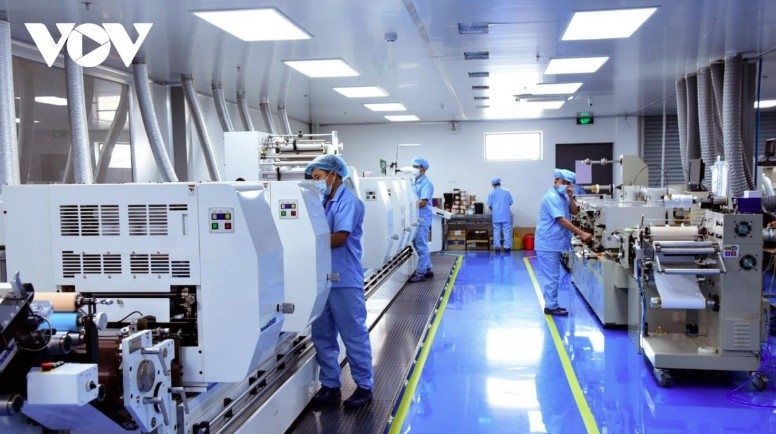Business-matching event to link supporting industry firms
VOV.VN - A workshop scheduled for August 5 in Hanoi aims to attract greater investment into Vietnam’s supporting industries and strengthen ties among domestic and foreign businesses.

The event is jointly organized by the Vietnam Trade Promotion Agency (Vietrade) under the Ministry of Industry and Trade and the Foreign Investment Agency under the Ministry of Finance.
It forms part of two major exhibitions, namely the 11th Vietnam-Japan Supporting Industry Exhibition (SIE 2025) and the Vietnam Manufacturing Expo 2025 (VME 2025).
The workshop will highlight Vietnam’s investment potential, regulatory environment, and cooperation prospects across various regions and sectors. It will also serve as a business-matching platform, connecting Vietnamese enterprises with foreign investors to promote domestic supply chains, boost industrial capacity, and improve localisation rates.
Participants will gain an overview of investment flows into Vietnam’s supporting industries, especially from strategic partners such as Japan. Discussions will also cover shifting regional supply chains in the Asia-Pacific, along with the supplier selection criteria of global corporations in key sectors such as automotive, electronics, precision engineering, and semiconductors.
Representatives from local adminitrations, industrial parks, and economic zones will present preferential policies, infrastructure conditions, and investment strategies, aiming to help investors compare options and make informed decisions.
According to Vietrade, Vietnam is currently home to around 5,000 supporting industry enterprises, mostly in mechanics, electronics, textiles, and footwear. However, about 88% are small- or medium-sized firms that often lack advanced technologies and global-standard certifications.
Only 10% have adopted automation, and fewer than 20% are ISO-certified or apply modern management systems such as 5S, Lean, or Total Quality Management (TQM).
This gap in technology and quality standards has limited domestic firms to low-value processing stages, hindering their ability to secure high-quality contracts with multinational corporations. As a result, localisation rates remain below 40% in the automotive industry and are still limited in electronics, despite the presence of major global manufacturers.




